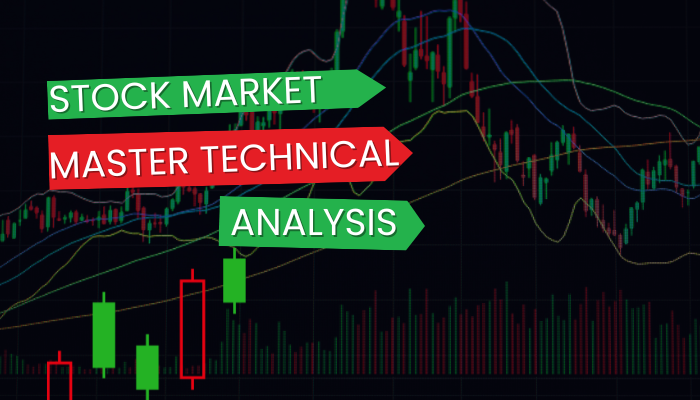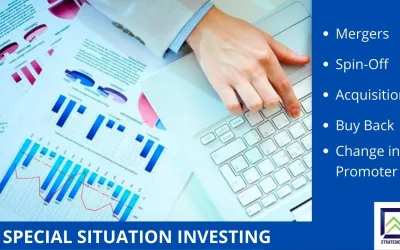Behavioral biases are irrational beliefs or behaviors that can unconsciously influence our decision-making process. Markets are largely driven by potentially irrational humans, each with their own behavioral biases. Stock picking is just a part of investing. Another aspect of investing is poor behaviors and biases, which would cause investors to lose money in stocks. Recognizing these biases makes people aware of poor investing behaviors. Some of these biases are as follows:
Herd Mentality
Many investors think in terms of herds and keep on replicating crowd behaviors. During bull markets when everyone is buying stocks, investors want to buy stocks. Many people are greedy in bull markets. For instance, during the dot com bubble in the late 1990s, everyone wanted to buy technology stocks.
During bear markets, the opposite happens – many investors want to sell stocks. Many people are fearful of bear markets, leading to this behavior. For instance, during the March 2020 crash in the markets, some people sold off their investments at low levels. The crash turned out to be a wonderful buying opportunity. Stock markets have more than doubled since then.

Overconfidence bias
If some new investors tend to make good money in the initial few years in stocks, they tend to be over-confident of their own abilities. They might misinterpret the beginner’s luck and overestimate their skill. Another example of overconfidence bias is when investors move outside their circle of competence and buy stocks.
If certain investors are overconfident of their own abilities to pick stocks, they might stop learning, which will hamper their future performance to earn returns. Investors need to be humble to realize they need to continuously learn about the markets whatever their experience level is.
Self-attribution bias
Under this bias, investors might attribute their own successes to self. But, they attribute their failures to external events. For instance, whenever an investor might make money in stocks, he may attribute it to his own research and competence. But, when he loses money, he might attribute it to factors like poor economy, bad company management, etc. The way out of this bias is to realize that losses in a few stocks are inevitable and to take responsibility for bad decisions.
Regret
Investors may regret the stock opportunities they might have missed. Investors may also regret certain losses that might have been taken in the past. Another regret that investors face is when the stocks they might have sold have continued to move up. The problem with regret is that it hampers moving on and leads to missing out on new opportunities as they might be still reeling under the effect of regret.
There is another aspect to regret too. People might indulge in certain behaviors in order to avoid regretting them in the future. Some people want to avoid the regret of losing money in stocks. Hence, they might avoid investing in stocks altogether. Some people might take less risk as compared to their risk appetite. This would mean they would miss out on the wonderful avenue to create wealth.
Confirmation bias

Confirmation bias implies that investors constantly seek information that confirms their existing beliefs. For instance, let’s say if an investor is analyzing a stock for the purpose of deciding whether to buy the stock. On the basis of his initial analysis, he thinks the stock could be a good buy. He would then actively seek information that confirms his existing viewpoint that the stock is a good buy. If he gets any information that goes against the existing view that he should not buy the stock, then he would disregard the information. This might mean that he might make the wrong decision to buy the stock even though he should not be buying the stock.
Loss aversion bias
Loss aversion is an emotional bias that involves taking action (or failing to take action) to avoid a loss. It is rooted in the fact that humans tend to feel the pain of a loss twice as intensely as the joy of an equivalent gain. Panic selling is one of the most dangerous things an investor can do, especially during volatile days.
Many times investors make mistakes and may buy shares that turn out to be losses. If the investment thesis on the basis of which investors have bought a stock turns out to be wrong and the investment turns into losses, investors need to sell the stock. However, since many investors suffer from loss aversion bias, they do not take losses by selling the stock. They are unable to move on from the bad decision that they took. The stock may further go down leading to more losses. Hence, investors need to sell their losing trades if the investment rationale does not play out as expected.
Join Me On My Telegram Channel Where I Share Much More Value Adding Knowledge Of Investing/ Trading: Click Here
Also, Don’t Forget To Follow Us On Our Social Media Accounts:
Facebook: https://www.facebook.com/strategicalpha/
Instagram: https://www.instagram.com/strategicalpha/
Twitter: https://twitter.com/suyog_dhavan
YouTube: https://bit.ly/2IIqztO
Very important note: The objective of this blog is to share knowledge and info about multi-bagger ideas/opportunities. Neither is this trading website nor an analyst website nor a Buy/Sell call website. For stock market success, always do your homework, own analysis, and make your own decisions.







